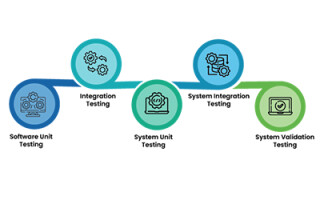2018 IoT barometer: IoT in the enterprise is no longer a standalone technology
November 27, 2017

Businesses that embrace the IoT as a regular function of their business have have a leg up on the competition.
The IoT has been driving significant impact in the business world since its inception nearly two decades ago. IoT applications can reveal key data insights for the enterprise and make processes more efficient across industries. For example, it increases doctors’ visibility into patient adherence during medical treatment or allowing for better control over building maintenance systems.
As the technology matures and business use cases and successes grow, more organizations are adopting and implementing the technology. According to research from Gartner, 8.4 billion connected things will be in use worldwide by the end of the year, and will reach 20.4 billion by 2020. In fact, IoT is seen as so essential to business functions today that many companies no longer view it as separate from other technologies. IoT is quickly becoming integrated into the fabric of the standard enterprise IT infrastructure.
When enterprise businesses first began adopting and deploying IoT, the technology often existed separately from other processes and solutions. For example, several years ago, a business might have implemented a small IoT project as part of a single solution, or to one team or business unit on a trial basis. Now, IoT is being integrated into standard IT functions and rolled out across teams for many businesses.
Vodafone’s 2017/2018 IoT Barometer, which surveyed IT decision-makers about the current IoT market, found that 82% of businesses agree that IoT is no longer a standalone technology. Rather, it’s intrinsically linked to analytics, artificial intelligence, and other critical digital initiatives. And, many companies no longer refer to their IoT work as a “project,” because the technology has become so ingrained in their processes.
Companies that have robust IoT programs in place are integrating the technology into core systems, such as ERP and CRM platforms. By integrating IoT into these systems, businesses can ultimately derive more accurate and more valuable data, and have the power to make adjustments in real time.
Digital transformation remains a key priority for forward-thinking businesses. Companies of all kinds are prioritizing the adoption and implementation of technologies and processes that will make work more efficient and help them keep pace with competitors. IoT plays a big role in digital transformation initiatives—most organizations that have adopted the IoT don’t believe digital transformation is achievable without it. The businesses that have integrated IoT into their initiatives are leading the way in digital transformation, and will soon begin to edge out competitors that aren’t leveraging the technology.
IoT adopters are also seeing other benefits as they integrate IoT into larger IT systems. The benefits that come with IoT go way beyond just aiding digital transformation efforts and enabling better business insights. It’s becoming a driver of improvements across businesses. For example, companies are using the technology to reduce risk, cut costs, create new revenue streams, improve employee productivity, enhance the customer experience and more.
As companies continue to integrate the IoT into more of their infrastructure across operations, they’re likely to see increased business benefits. In fact, within the next five years, most organizations will likely take for granted that appliances and systems such as vehicles and HVAC can be monitored and controlled remotely through the IoT since it will be so commonplace. Businesses that integrate IoT work into existing IT infrastructure stand to gain the highest returns from the technology, and will ultimately see the most success across the competitive landscape.
Erik Kling joined Vodafone in September 2010 and is the Vice President IoT New Business Development. His responsibilities include building and developing the IoT domestic new business team including the Latin America region, driving IoT solutions into Vodafone Global Enterprise accounts along with additional customers and markets and defining, developing and nurturing the IoT ecosystem within the market place. He has more than 20 years of experience in the communication technology field covering hardware, software, services, and solution elements of the industry.





